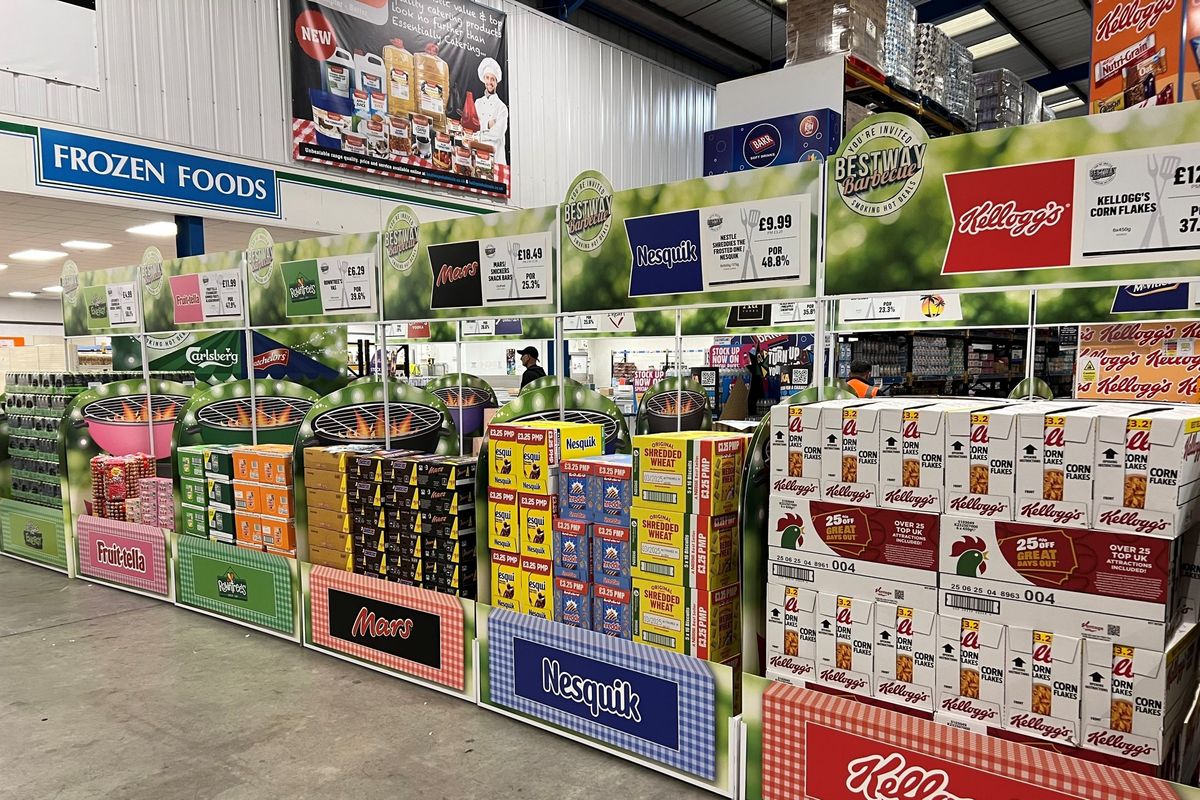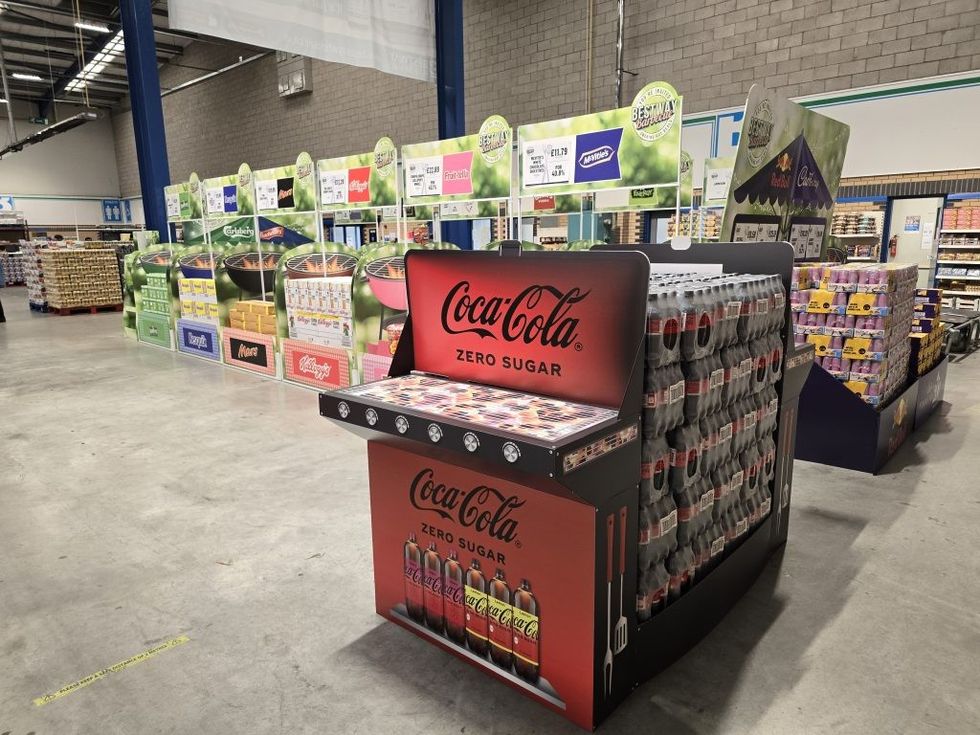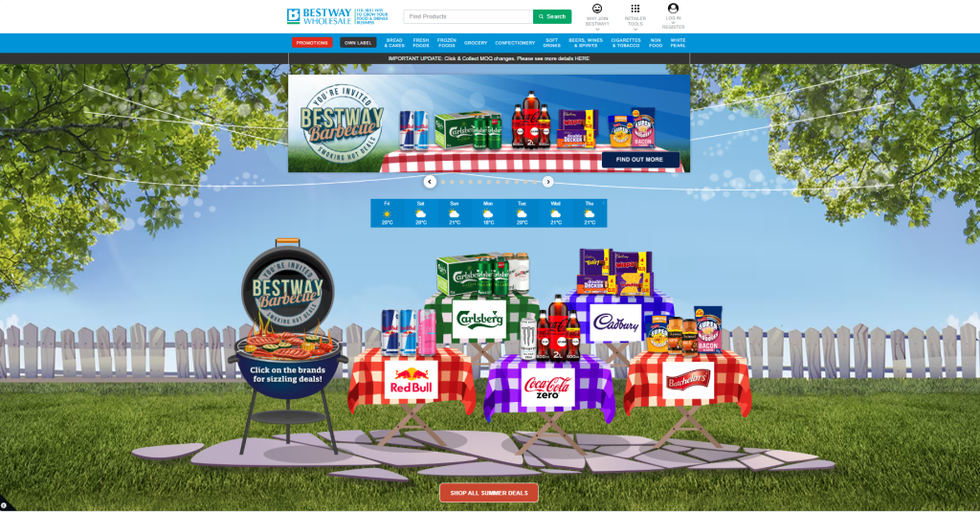Wholesaler Bestway Wholesale has launched a major summer campaign offering "smoking hot deals" to support its customers across its nationwide depots, and online.
In this campaign, retailers can take advantage of great deals on BBQ and picnic products as the nation gets set to enjoy a big summer of sports, including the Olympics, Paralympics and Men's and Women's T20 World Cups.
Retailers will be greeted in depot by Bestway’s Barbecue campaign offering deals and supplier promotions across soft drinks, beers, wines, ciders, snacks and confectionery categories. As with every campaign, Bestway has prepared exciting and impactful in depot theatre themed for the barbecue season to help retailers navigate their shopping during the summer months.
The campaign is also featured online, where retailers who choose Click & Collect or delivered services will be able to find the same barbecue theme and amazing deals. For the online and digital experience, Bestway have even created their very own weather widget to help retailers prepare their shops in accordance with the predicted weather.
Featured on the homepage and in the apps, this responsive and real time feature offers customers weekly weather updates and logged in users can see the weather forecast for their location. The website will be dressed with a sunshine filled garden theme, with products displayed on branded coloured tablecloths highlighting hero SKUs of each participating supplier. Throughout the campaign, depots will be running competitions, prize draws and incentives to give back to customers, including ££-thousands in depot credits.
In collaboration with key suppliers, the summer campaign has been designed to create extraordinary visual appeal for Bestway’s 100,000 customers on their shopping journey during the summer months.
Offering great returns for Bestway’s supply partners, the campaign is designed to drive footfall and interest into its depots, helping retail customers to energise their own promotions.
On the back of a hugely successful 2023, a year where Bestway ran four seasonal campaigns, the business continues to invest in price and lead the way in creating theatre and activations to enhance the customer journey. Last year, the Summer campaign alone saw a 30 per cent sales uplift across all categories with 25 per cent of total visitors purchasing products.
Kenton Burchell, Bestway Wholesale Group Trading Director, says, "We know that Bestway leads the market with best-in-class seasonal campaigns, delivering market leading prices and margins for customers. Our campaigns are focused on the key brands and first-to-market new product launches as well as exceptional theatre to create an intervention in the normal customer journey of our retailers.
“The summer period is a key trading period for convenience retailers, and we want to give back to both our customers and their shoppers by providing exceptional value to springboard sales in the summer months.”
“With Summer being one of the biggest trading moments of the year and with such a huge summer of sport on the agenda we are confident that our deals for BBQ and picnic products across beers, wines, spirits, confectionery and crisps and snacks categories are the best in the market.
“These deals will also help our retailers to fulfil the demand in store for frequent tops up and spontaneous shopping trips, typically seen during the Summer months as shoppers decide on a last-minute BBQ, or picnic.”
Burchell concluded, “We hope the campaign will encourage our retailers to make Bestway their number one choice of where to shop for their summer products. By doing so, they will be rewarded – our whole aim is help them make more profit for their business and their customers in this summer of sports”.
Bestway’s message remains simple and focused, promising to make customers feel special, to enjoy amazing prices with great margins to help them grow their businesses’ and help their end shoppers.




